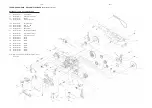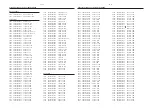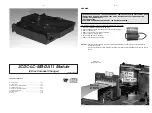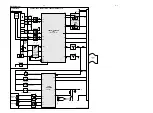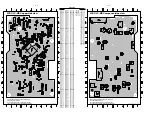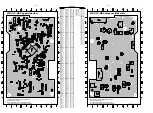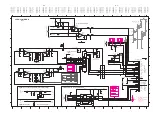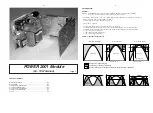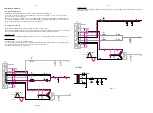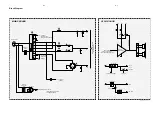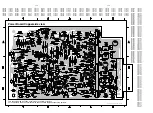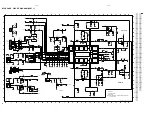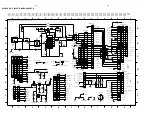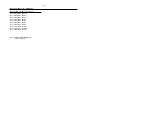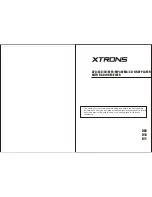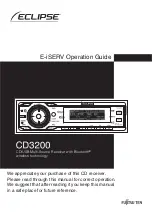
Circuit details continued:
• Low power standby feature
An additional small standby transformer, reduces power consumption in standby-mode.
In case power is switched on, the control line ECO is low
→
relay 1210 is activated
→
contacts 1 and 2 are closed
→
transformer 5001is connected to mains.
When the set is switched off (standby) the control line ECO is high
→
relay 1210 is not activated
→
mainstransformer is
disconnected. Via standby transformer and rectifiers 6210-6214 the supply voltage LOW_PWR_SUP is substituted. This
voltage is always available and so the microprocessor is kept running.
• DC voA1, +B1, +C1
These voltages supply the Super Class G amplifier, described on previous page.
The whole power supply is optimized for the special characteristic of this type of amplifier. For that reason several “tricky”
details have been applied to ensure optimal efficiency and symmetrical load to the mains transformer.
Generation of +A1
Common full wave rectifying with bridge rectifier 6202, using 100% secondary winding of mains transformer (pin 10-14).
Generation of +B1
The supply for +B1 consists of one full wave rectifier:
– 2 diodes of bridge rectifier 6202, with 6200(6220 in parallel) 6201(6221 in parallel) for generation of +B1using approx.
70% secondary winding of mains transformer (pin 10-13 respectively pin 11-14).
As example for generation of +B1 see picture 1.
Generation of +C1
Full wave rectifying with 2 diodes of bridge rectifier 6202, using 50% secondary winding of mains transformer (pin 13-15/13-11).
See picture 2 below.
11-2
11-2
*
2204
2206
2203
2201
2215
2205
2216
6201
6200
+B1
+C1
+A1
1207
1200
1205
6202
5001
17
10
11
12
13
14
8
9
1
2
3
4
5
6
7
15
16
10,5V
10,5V
6,5V
6,5V
4,5V
38V
19,5V
28,5V
41V
pos. halfwave
neg. halfwave
Signal path
picture 1
*
2204
2206
2203
2201
2215
2205
2216
6201
6200
+B1
+C1
+A1
1207
1200
1205
6202
5001
17
10
11
12
13
14
8
9
1
2
3
4
5
6
7
15
16
2215
2216
+C1
1200
15
11
13
6202
D5SBA20
6202
simplified:
28,5V
17V
17V
19,5V
10,5V
10,5V
6,5V
6,5V
4,5V
38V
19,5V
41V
pos. halfwave
neg. halfwave
Signal path
picture 2

